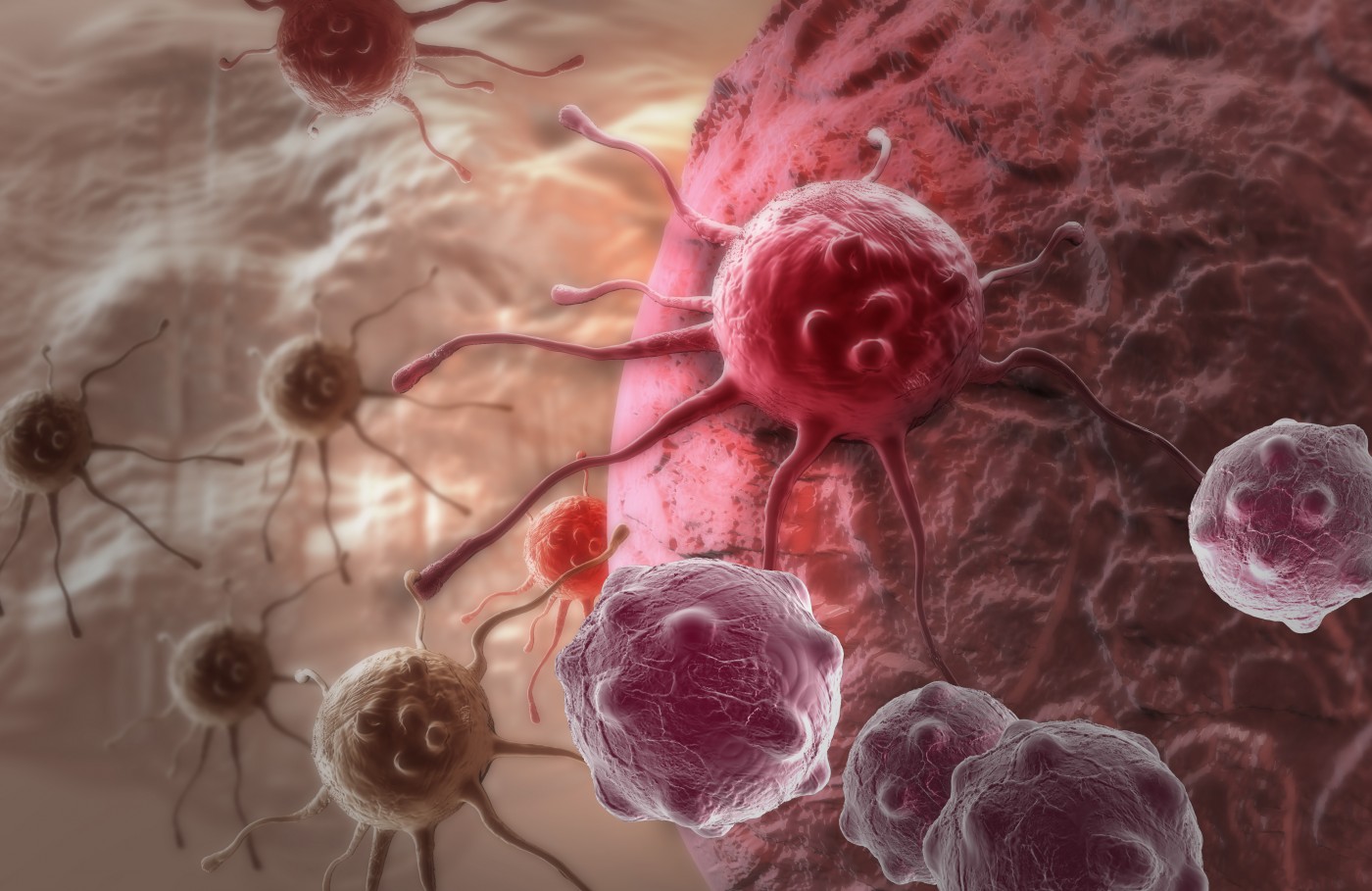Frying oil that has repeatedly been reheated to high temperatures — as can take place in deep frying of foods — may cause genetic changes that trigger the growth and spread of breast cancer, a study in a mouse model of the disease reports.
The study, “Thermally Abused Frying Oil Potentiates Metastasis to Lung in a Murine Model of Late-Stage Breast Cancer,” was published in Cancer Prevention Research.
Fats are responsible for approximately 35% of the total calories ingested by an average person in the U.S. Cooking oil used in deep-fried food is a major cause for concern, as toxic chemical alterations can happen when the oil is heated at high temperatures (between 175-192ºC), and particularly when the oil is reused.
For this reason, many countries worldwide have put in place regulations in an attempt to ensure cooking oil quality.
In this study, a group of scientists at the University of Illinois evaluated the impact of chemical alterations caused by cooking oil reheating on cancer growth and its spread in a mouse model of late-stage breast cancer.
To trigger the onset of late-stage cancer, investigators injected malignant breast cancer cells into one of the tibias (one of the bones of the lower leg) of healthy mice. These cells are so aggressive they can spread rapidly throughout the body and reach the lungs, liver and lymph nodes.
To track these cells over time and to assess cancer’s spread, researchers used cells that had been genetically engineered to produce large amounts of a fluorescent enzyme called luciferase (a light-emitting enzyme from fireflies).
After feeding all animals with a low-fat diet for a week, researchers divided them into two groups: a control group, in which animals were fed with unheated fresh soybean oil for 16 weeks; and an experimental group, in which animals were fed with reheated oil for the same period of time.
Results showed that 20 days after being injected with breast cancer cells, animals eating reheated oil had four times more sites of cancer spread compared to mice fed fresh soybean oil. These new sites included the animals’ lungs.
“There were twice as many tumors in the lung, and they were more aggressive and invasive,” William G. Helferich, a professor of food science and human nutrition, and the study’s lead author, said in a press release.
After examining the tumors in the lungs in more detail, researchers found that mice fed with reheated oil had a 1.4-fold increase in proliferating cells compared to animals on fresh soybean oil.
Gene expression in the liver was also affected by reheated oil. In particular, investigators found abnormalities in 455 genes involved in lipid (fat) and xenobiotic metabolism (xenobiotic referring to foreign substances that are metabolized in the liver), and in oxidative stress (cellular damage that occurs as a consequence of high levels of oxidant molecules) in these mice.
These findings are particularly concerning, especially considering the reheated oil used in the study contained approximately 15% of polar material — substances that may be affected by heat — which is 9-12% less of what is currently allowed by legislation in some countries.
“Because there are no regulations in the U.S., it’s really difficult for us to evaluate what’s out there,” said Nicki J. Engeseth, a food chemistry professor and study co-author. “But the important thing is, the food that’s fried in these oils sucks up quite a bit of oil. Even though we’re not consuming the oil directly, we’re consuming oil that’s brought into the food during the frying process.”
Following this train of thought, Helferich noted that one of the possible mechanisms by which breast cancer re-appears in patients may be related to their diet.
“We’re trying to add to this conversation and help people understand that it might not be just some inherent biological mechanism but a lifestyle factor. If diet provides an opportunity to reduce breast cancer survivors’ risk, it offers them agency over their own health,” said Ashley W. Oyirifi, a graduate student and lead author of the study.

